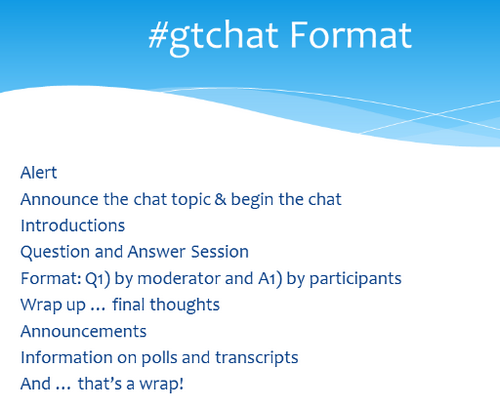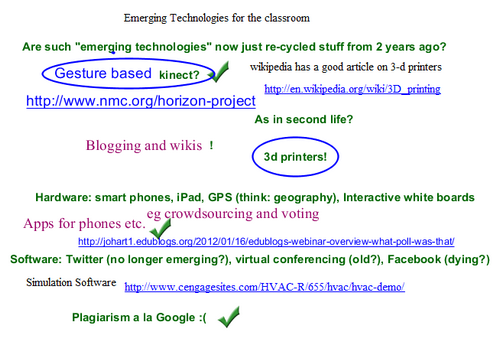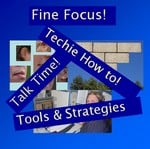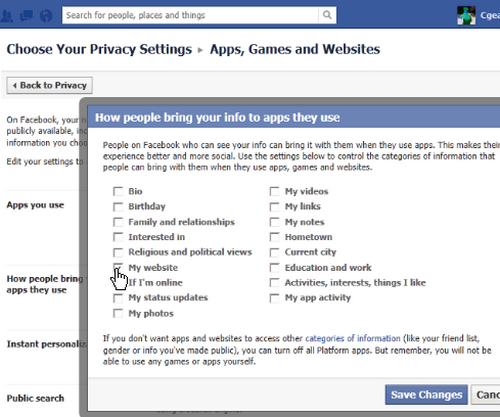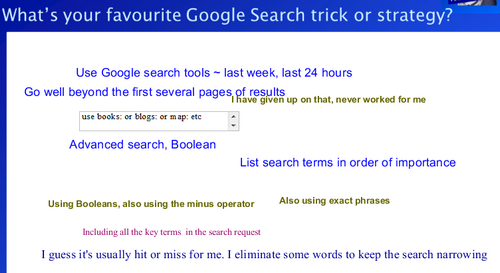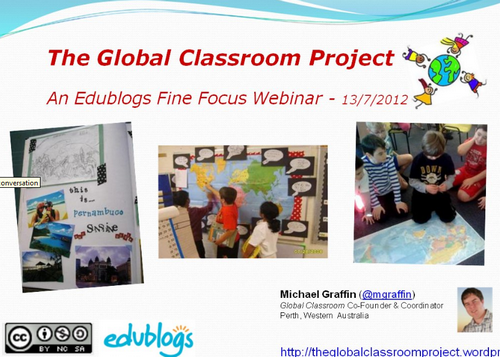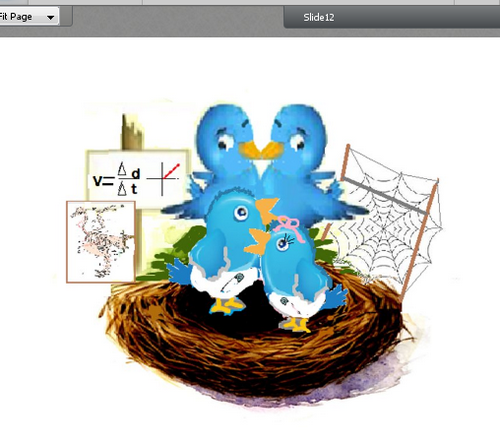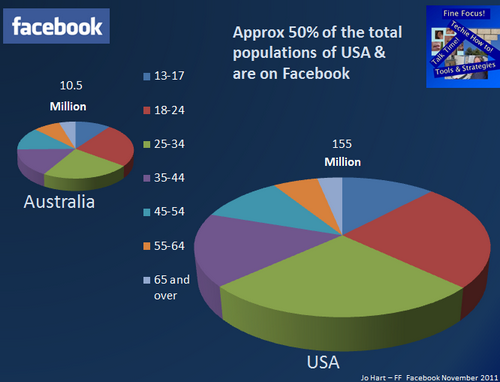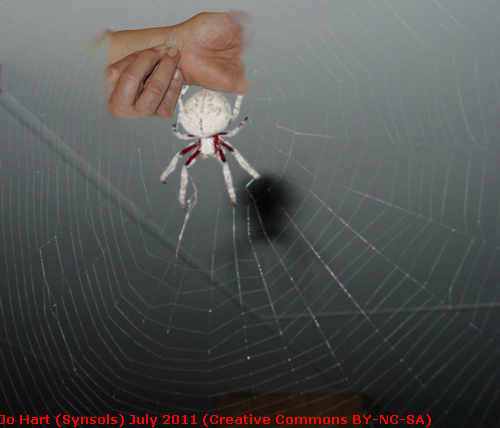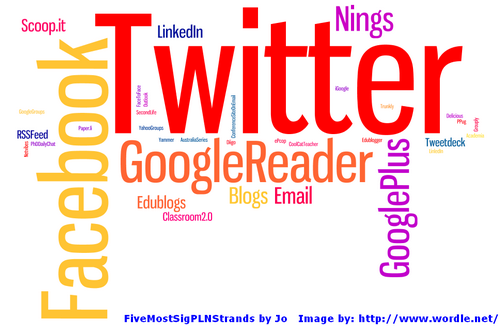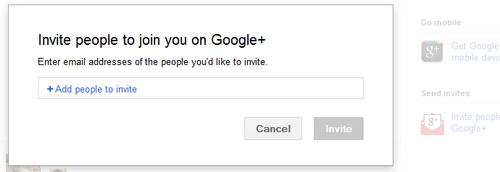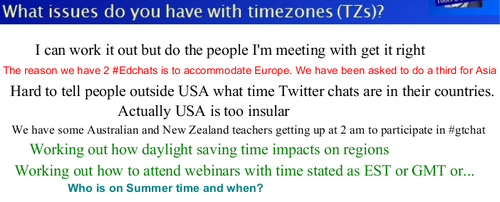Introduction
This is the overview for our most recent (recorded as always) FineFocus webinar with guest presenter Lisa Conrad (@ljconrad).Lisa gave us a fascinating look at the Twitter (Gifted and Talented) #gtchat from its inception to the current position and on into the future. She also gave us opportunities for and answers to many questions!
The session
Lisa began with an explanation of #gtchat and a poll to find out our awareness of #chats in general on Twitter. Then she talked about the origins and history of #gtchat from its foundation by Deborah Mersino the first moderator, through the transition to Lisa herself as moderator, and also the support from the Texas Association for the Gifted & Talented.
Next Lisa gave us a run through on joining Twitter and also: ideas on finding relevant people to follow; suggestions on setting up a Twitter client for #chats; and some explanations of Twitter jargon.
Then came a look at the format of #gtchat
With a look at how topics are determined by Poll. This led into a look at some recent topics, and some recent guests.
Lisa then moved on to the future, starting with upcoming events and then moving into the future with exciting ideas for future developments in other social media to enhance the undoubted value of #gtchat as a professional development opportunity.
This concluded the formal part of the session and we moved on to a great question and answer session where Lisa did a terrific job in responding to many questions.
Conclusion
This was a great session! Lisa gave us a fascinating insight into the “inner workings” of #gtchat and much food for thought and inspiration through the potential future developments that will add another layer of “richness” to #gtchat. Thank you Lisa for such an interesting session!
Next Webinar
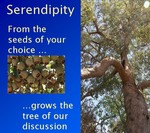 Our next session will be an Edublogs “Serendipity” session on Thursday August 16th at 23:00 GMT/UTC (Afternoon/Evening USA) or Friday August 17th at 7am West Aus, mid morning Eastern States Aus depending on your timezone (check yours here) – in the usual BlackboardCollaborate room. This is one of our fortnightly unconference sessions where we invite you to bring along your “hot topics” and “burning issues” for our poll on the topic
Our next session will be an Edublogs “Serendipity” session on Thursday August 16th at 23:00 GMT/UTC (Afternoon/Evening USA) or Friday August 17th at 7am West Aus, mid morning Eastern States Aus depending on your timezone (check yours here) – in the usual BlackboardCollaborate room. This is one of our fortnightly unconference sessions where we invite you to bring along your “hot topics” and “burning issues” for our poll on the topic

